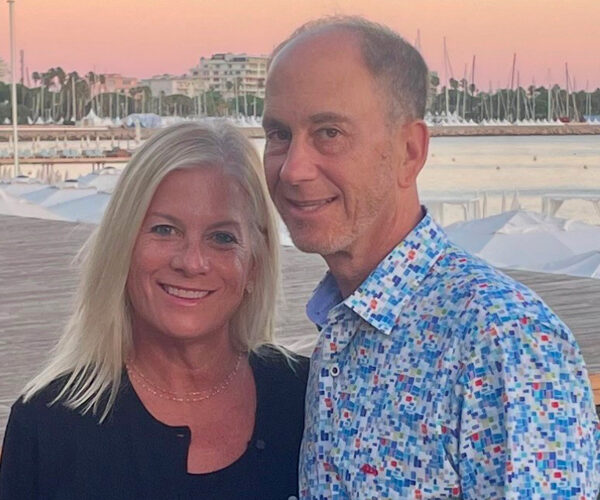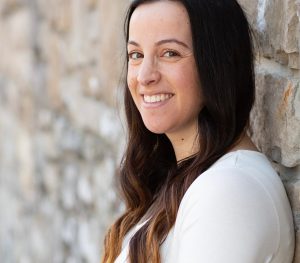By Simone Ellin
Surviving an Abusive Relationship
When she married her ex-husband in 1999, Lauren,* a mother of three, never dreamed she would find herself needing the services of CHANA.
“In the beginning, my husband seemed like a nice guy. He seemed devoted, had a lovely, welcoming family and got along great with my son,” she recalls. “I was a single mother and wanted to give my son a daddy.”
Lauren says it took about two years before her husband began to show signs of abusive behavior. Unable to find support through her husband’s family and not wanting to burden her own family who lived across the country, Lauren turned to Jewish Community Services (JCS) and was referred to CHANA. The healing process for her and her children began there.
“CHANA is the ultimate Jewish mother,” she says. “They take you in, feed you, get you any help you need and completely validate your feelings.”
“CHANA is the ultimate Jewish mother,” she says. “They take you in, feed you, get you any help you need and completely validate your feelings.”
CHANA helps victims and survivors of physical, sexual, financial, verbal and emotional abuse, neglect and trauma by providing crisis intervention services, legal aid, individual and group counseling and prevention education. “We provide services that enhance self-worth, give options and support,” says CHANA’s Director, Dr. Nancy Aiken. “We want you to be safe, emotionally and physically. Sometimes people think that if they don’t need a shelter, are financially well off or aren’t planning to get a divorce, they don’t need CHANA. That isn’t true. We can offer support and education, whether you stay or go.”
While physical and sexual abuse are the most commonly recognized forms of domestic violence, many of us are less familiar with financial, verbal and emotional abuse. These types of abuse may be more difficult to identify, but can be devastating to their victims.
“Being controlling about money, not sharing financial information, asking a lot about what things cost, wanting to see receipts, even when the money being spent belongs to the woman … these are some warning signs that a relationship is unhealthy,” says Aiken. Lauren, who experienced financial abuse, verbal and emotional abuse with her former husband, agrees.
“[Financial abuse] is horrific. Someone is controlling you by withholding grocery money. Sometimes there was no money unless I agreed to have sex with him. I tried to work outside the home but my ex would always change his schedule so that I would have to call in and tell my job I couldn’t come. I constantly suffered the stress of being fired. At the beginning of the marriage, I first attended medical massage therapy school, but after I finished and passed the national board exam, he refused to give me the money for my license, so I wasn’t able to practice,” she recalls. “Financial abuse is debilitating. It weakens your self-esteem and causes you to do things you wouldn’t ordinarily do. And it is harder for other people to understand. But when I went to CHANA, they weren’t shocked at all. They helped me to name it.”
Adina* was also surprised to find that CHANA had heard stories similar to her own many times over. Adina met her ex-husband through a matchmaker, and after a brief courtship, the couple married and soon had a baby.
“The relationship was abusive from the beginning,” says the 36-year-old mother of four. “But I didn’t recognize it. I didn’t see how he was controlling me, twisting my words, manipulating me. I was taught to bend to my husband’s will and told never to complain to friends. When you don’t talk to friends, you don’t know when something’s wrong.”
In her marriage, Adina experienced both physical and emotional abuse, but says the emotional abuse was most scarring. Adina went to the rabbis, but soon learned that her husband was consulting them and invalidating her story. “He convinced all the rabbis I was crazy and a bad mother and I lost every one of the friends I made through my marriage. When I asked them to testify for me during the divorce, they all said they couldn’t. ‘It was over their heads.’” She felt stuck, hopeless and alone.
Although she had heard about CHANA, Adina didn’t contact them for many years. She assumed they wouldn’t believe her story of abuse either. Finally, on a colleague’s recommendation, Adina decided to give CHANA a try.
“I met with Naomi and she validated me. She sent me to Cynthia [Ohana], who explained the legal aspects to me, and I saw a therapist. When you go through your story, you feel like it is unique. Then you find out it’s not. It took my therapist four years to convince me I wasn’t crazy.”
CHANA also helped Adina regain her confidence as a mother. “I remember one Mother’s Day — I was feeling so bad and the doorbell rang and it was someone from CHANA. She brought a package with all kinds of gifts — a cookbook, perfumes, jewelry — I just burst into tears. It was so meaningful to know that someone thought of me and made me feel like a good mother.”
Nowadays, Adina, who is divorced and shares custody of their children with her ex-husband, says that though he still tries to control her, she now has the tools to cope.
Lauren’s life also changed for the better. She completed certification in pediatric massage therapy for trauma victims and is working in her field. Lauren also volunteers as a speaker for CHANA.
“I’m in a new relationship with an old college boyfriend,” she says. “He was always my best friend, and we have a deep bond.”
Life isn’t always easy for her and her three children; they struggle with financial issues because her ex still creates problems by withholding alimony and child support.
“My children and I love each other and we still receive help from CHANA. All of us have developed coping skills and healing tools. We know how to recognize red flags [in relationships] and we know what to do about them. We aren’t victims anymore. I have taken my experience and turned it around to heal myself and other people. CHANA is completely unique and a precious gem in our community.”
Warning signs that a relationship may be abusive, from The National Domestic Violence Hotline:
- Telling you that you never do anything right
- Showing jealousy of your friends and time spent away and/or discouraging you from seeing friends or family members
- Embarrassing or shaming you with put-downs
- Controlling every penny spent in the household
- Looking at you or acting in ways that scare you
- Controlling who you see, where you go or what you do
- Telling you that you are a bad parent or threatening to harm or take away your children
- Preventing you from working or attending school
- Destroying your property or threatening to hurt or kill your pets
- Intimidating you with guns, knives or other weapons
- Pressuring you to have sex when you don’t want to or do things sexually you’re not comfortable with
To learn more about domestic abuse, visit chanabaltimore.org, call the CHANA office at 410-234-0030, or call CHANA’s confidential helpline at 410-234-0023.
- Names have been changed to protect the safety of these women. This story originally appeared in Jewish Women. Read the rest of the publication now!
Subscribe to our newsletter
The Associated is a home for everyone in the Baltimore Jewish community. We offer several email lists to help people find a community, engage with their peers and support Jewish journeys around the world.
Join Our Mailing ListAdd Impact to Your Inbox
Sign up for our newsletter
Subscribe to our newsletter
The Associated is a home for everyone in the Baltimore Jewish community. We offer several email lists to help people find a community, engage with their peers and support Jewish journeys around the world.
Join Our Mailing List









 Please Wait while we loading your video.
Please Wait while we loading your video.